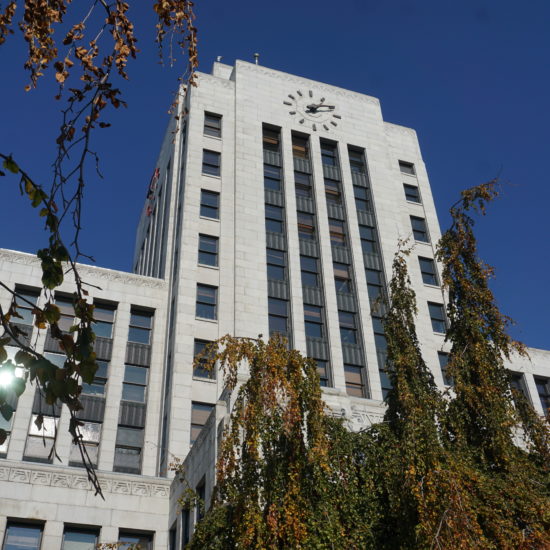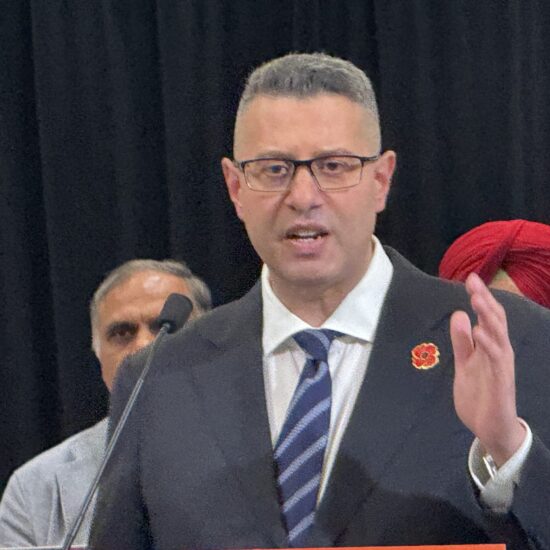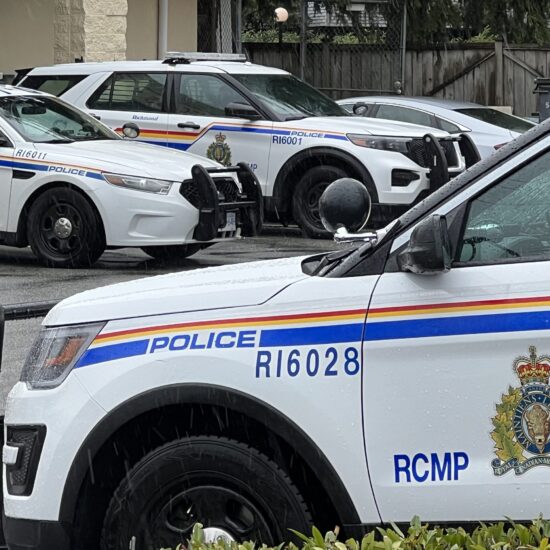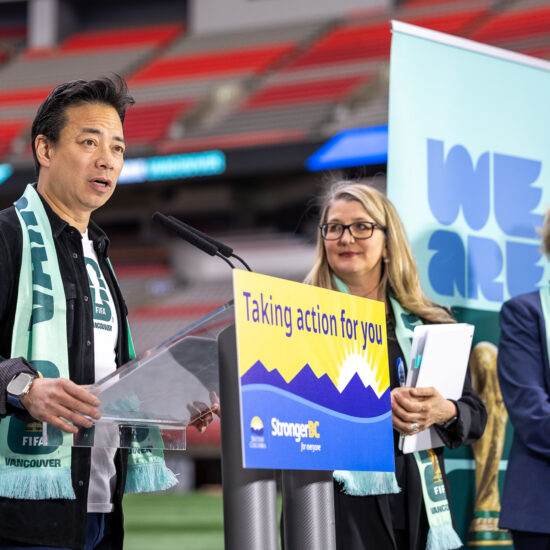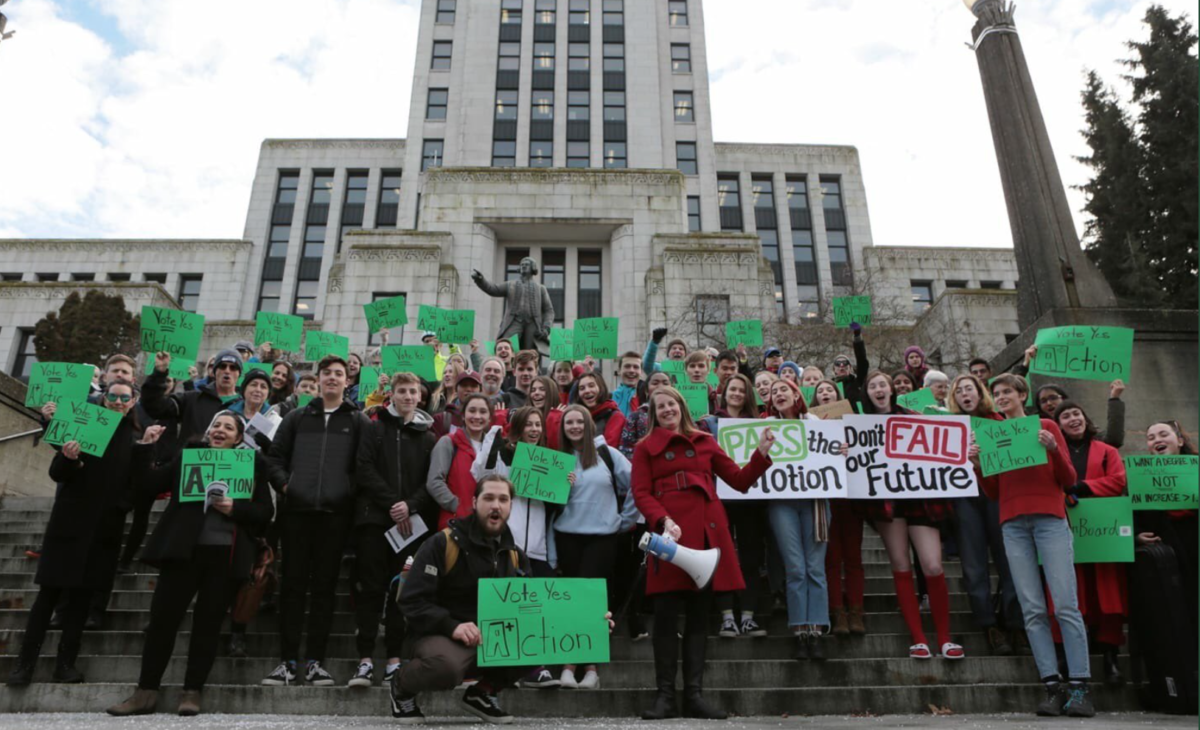
Bob Mackin
The coronavirus pandemic has wreaked havoc with civic finances and Vancouver city council could raise taxes up to 12% in 2021. Finance staff at 12th and Cambie warn council members to limit new initiatives until later in 2021 or in 2022.
Meanwhile, bureaucrats behind a 371-page report want city council to open the door to charging a tax on downtown vehicle drivers and a tax on residential parking permits.
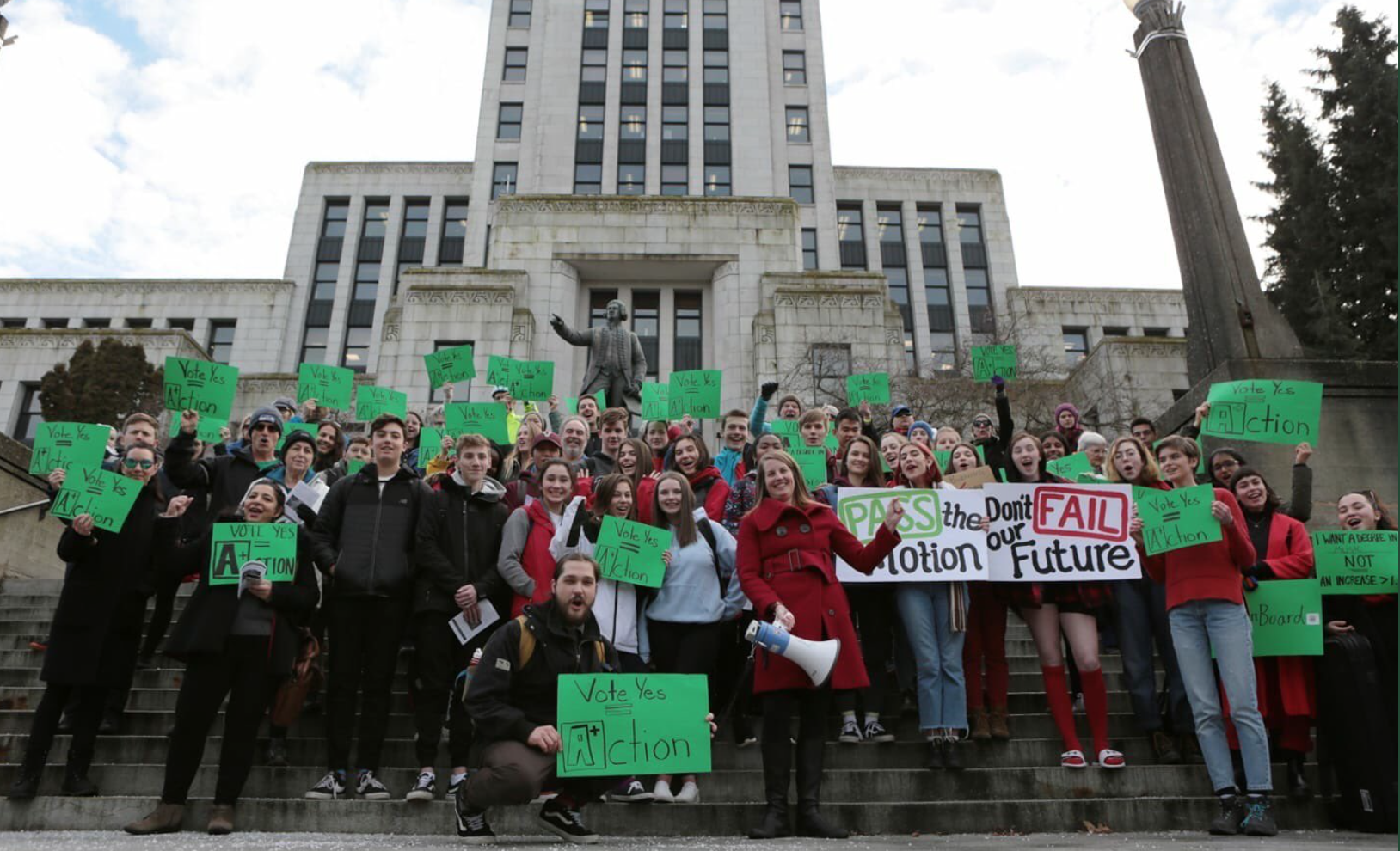
Coun. Christine Boyle (holding megaphone) with a climate emergency lobby group in 2019 (Twitter)
The $500 million Climate Emergency Action Plan, the successor to the Vision Vancouver city council’s Greenest City 2020 plan, goes to city council Nov. 5. Its main author is the city’s climate policy manager, Matt Horne. He spent 13 years with the Pembina Institute think tank before joining city hall in 2017.
The plan has the fingerprints of outgoing City Manager Sadhu Johnston all over it. The American import, who announced his resignation by year-end, was the driver of the Greenest City plan, which fell short of 2020 targets and needed to be rebranded as such. Johnston wants the not-so-cheap CEAP to be his legacy, after falling short with the Greenest City 2020 plan.
Johnston told Coun. Melissa de Genova in a July 13, 2018 email that Vancouver would not reach its 33% greenhouse gas reduction target by 2020 and there was no “greenest city in the world” target or international award.

Day after climate emergency declared: (clockwise from top) Mayor Kennedy Stewart, Coun. Christine Boyle and Coun. Adriane Carr calendars. (City of Vancouver)
The CEAP scheme has significant gaps. It does not account for the carbon impacts of cargo and cruise ships at the Port of Vancouver or the impacts of planes taking-off and landing at Vancouver International Airport. Heavy transport, the region’s biggest polluter, is under federal jurisdiction.
Vancouver is struggling with the opioid overdose and coronavirus pandemic emergencies, both officially declared by the provincial health officer. The climate emergency motion of Jan. 16, 2019 was the product of lobbying by the Force of Nature environmental group and others.
The October 2018-elected city council under Mayor Kennedy Stewart declared climate change an emergency, but no meeting with top emergency management officials followed. Neither did any live, televised news conference. It was pretty much business as usual. Meanwhile, the Downtown Eastside remained full of despair.
Stewart went about his business for a couple of days and then took the weekend off. It was an emergency in name only. The city’s State of Emergency bylaw was not invoked.
Same went for Green Coun. Adriane Carr and OneCity Coun. Christine Boyle, the two biggest boosters of the symbolic emergency and the new tax-and-spend plan.
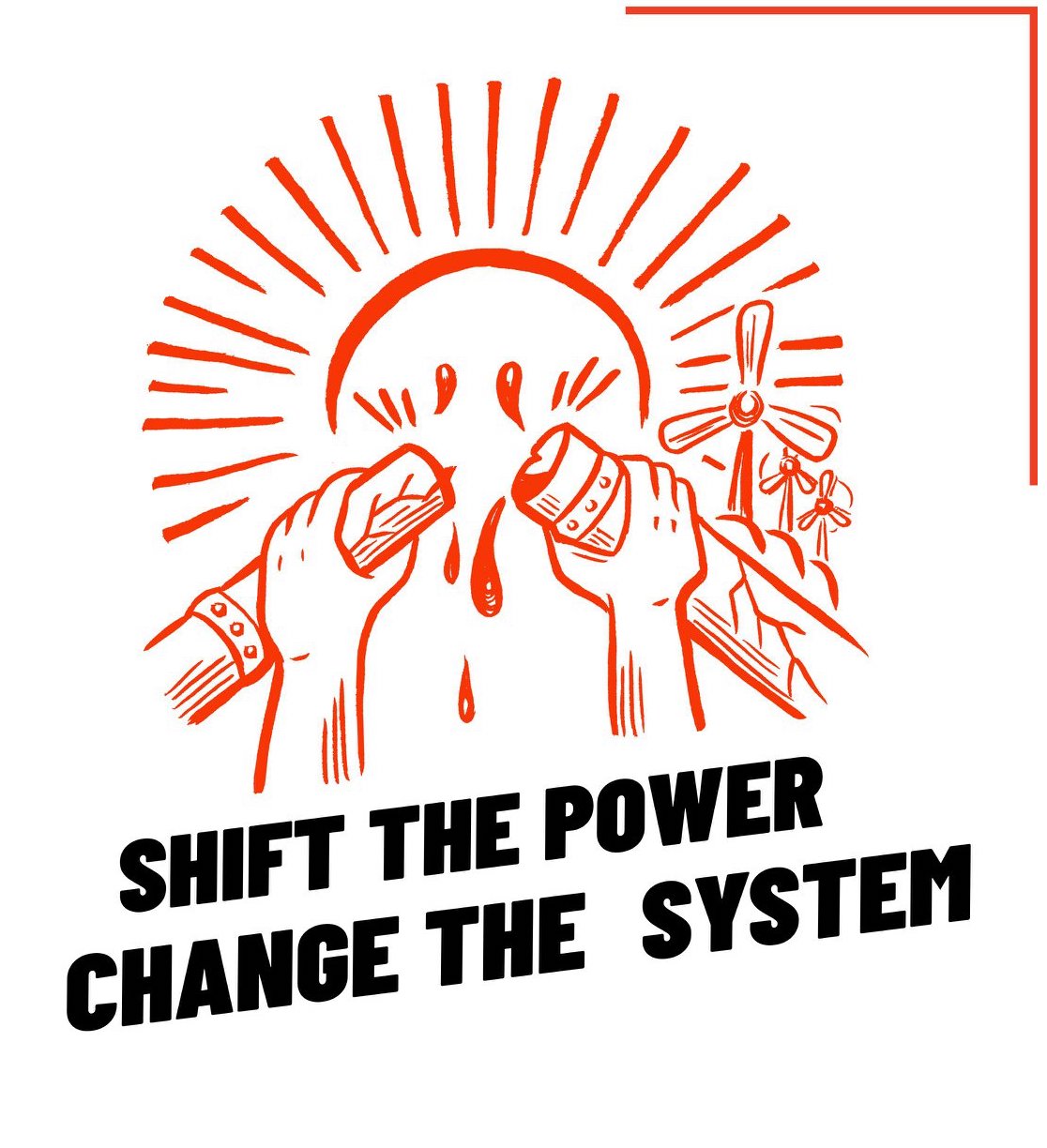
Cover of the 350.org-supported Power Shift 2019 conference that organized anti-pipeline protests. (Power Shift)
The new motion for the half-billion-dollar CEAP tax-and-spend plan is supported by another lobby group, called Vancouver Just Recovery Coalition.
The April 2020-launched Just Recovery issued a news release on the morning of Nov. 5, showing support from 350.org, the U.S. charity behind the Shut Down Canada anti-pipeline protests that blocked transportation routes across the country in early 2020.
Just Recovery’s co-chair is Matthew Norris. His bio on the Just Recovery website doesn’t show it, but Norris is a part-time, city hall-employed policy and communications specialist assigned to Boyle. That fact was also omitted from the Nov. 5 news release.
Norris claims his volunteering with the coalition is non-partisan and independent of his work in Boyle’s office.
Boyle denied, by email, that Norris is mixing Just Recovery with his duties at city hall.
“As a contract employee, Matthew doesn’t have access to any confidential information, and he didn’t have access to the CEAP any earlier than the public did,” Boyle said. “We are very careful and conscious on all of these fronts.”
So there you have it, a city councillor’s taxpayer-funded aide is also lobbying city council to create policy and pass legislation.
Support theBreaker.news for as low as $2 a month on Patreon. Find out how. Click here.






